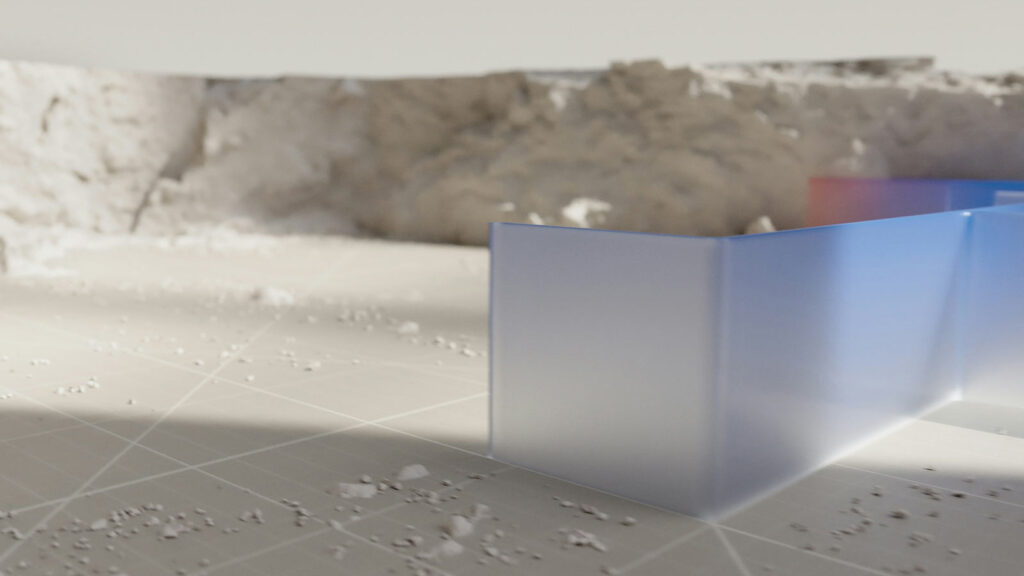
The real estate market has always been a cornerstone of wealth building. From homeowners safeguarding family assets to investors diversifying portfolios, property ownership remains central to financial stability. But the model is shifting. Blockchain technology is transforming the way people can buy, sell, and share property interests. Enter tokenized fractional property ownership — a system where blockchain tokens represent shares of real estate assets, making co-ownership more accessible than ever.
At the same time, traditional processes that an abstractor conducts title search research. Even in a tokenized future, the fundamentals of real estate law, public records, and liens don’t go away — they just evolve. For investors and lenders considering fractional blockchain ownership, understanding both the innovation and the traditional safeguards is essential, particularly the role of the abstractor.
This guide will cover:
At its core, tokenized property ownership uses blockchain technology to divide real estate into digital tokens, each representing a fraction of the property. For example, a $1 million apartment building could be split into 100,000 tokens worth $10 each. Investors purchase tokens rather than the property itself, giving them exposure to real estate returns without full ownership responsibilities.
This approach blends real estate law with fintech innovation:
But for all its promise, tokenization does not erase the fundamentals of property ownership. Every property still has deeds, liens, title history, and legal documentation behind the scenes.
To understand the risks of tokenization, you must first know the role of a title abstractor.
Abstractor definition: A real estate abstractor is a professional who researches and compiles the legal history of a property. They dig into public records, examine deeds, mortgages, liens, judgments, easements, and other documents to create a chain of title — a report showing who owns the property and what legal interests attach to it.
What does a title abstractor do?
Even in tokenized fractional ownership, abstractors remain vital. Why? Because blockchain tokens cannot automatically detect a hidden judgment lien or an undisclosed mechanic lien. Only human-driven or AI-assisted title research can confirm clean ownership.
A lien is a legal claim placed on property by a creditor to secure repayment of a debt. Tokenized or not, if a property carries a lien, investors must know.
In traditional real estate transactions, liens are discovered through a title search. In tokenized systems, if liens are overlooked, token buyers may unknowingly inherit exposure to debts attached to the property.
A title search is the process of reviewing land records to confirm property ownership and uncover encumbrances. Whether you’re buying an entire building or a single $10 token, the underlying property title must be clear.
Key steps include:
Without a proper title search, even blockchain tokens can represent risky or invalid interests.
Despite these complexities, tokenized real estate presents enormous potential.

However, tokenization carries risks, many tied to traditional real estate processes.
The future of tokenized real estate depends heavily on compliance with existing laws.
Until regulators provide clearer frameworks, tokenized real estate remains a frontier.

Despite AI, automation, and blockchain, real estate remains a field where attention to detail matters. Abstractors, attorneys, and title professionals safeguard against errors that code cannot catch.
These safeguards ensure that when a token represents a property, it truly represents a good title.
Tokenized fractional property ownership is not a shortcut around due diligence. It is an evolution of how real estate ownership can be structured and traded. But the foundation — title searches, lien checks, abstracts, and compliance with real estate law — remains unchanged.
Smart investors will:
Blockchain promises to democratize real estate ownership, opening doors for new classes of investors. But no matter how sophisticated the technology becomes, real property is still bound by centuries-old land records and legal obligations.
Tokenized ownership offers opportunities in liquidity, diversification, and efficiency. Yet it carries risks in liens, legal disputes, and regulatory gray areas. For investors, lenders, and insurance companies, the key lies in blending innovation with tradition — embracing the transparency of blockchain while respecting the diligence of abstractors, the necessity of title searches, and the authority of public records.
In short: Tokenized property may be digital, but the liabilities remain very real.
{
"your_order_number": "1663232-1212",
"afx_property_id": "79-275248-47",
"file_name": "1663232-1212-TS.pdf",
"public_url_to_file": "https://ourfileurl.com/files/download/431365FR2aPVJhUTIs6K4emWn7LPN5RGDvrT1WtQAHRKE3g",
"report_data":
{
"productID": "116",
"productName": "Current Owner Search w/ Taxes",
"propertyID": "79-275248-47",
"yourReferenceNumber": "ABCD1234",
"yourOrderNumber": "1663232-1212",
"yourMortgageeSiteName": "ABC MONEYSOURCE MORTGAGE COMPANY",
"dateComplete": "08/19/2024",
"dateEffective": "08/16/2024",
"propAddress": "123 SE TEST ROAD",
"propCity": "ESTACADA",
"propState": "OR",
"propZip": "97020",
"propCounty": "CLACKAMAS",
"propAPN": "111025371-012",
"propAltAPN": "R-3-4E-21-C-A-01500",
"propLegal": "SUBDIVISION VISTA TEST 4366 TRACT C",
"propOwner": "CORY TIPTON",
"landValue": "100000.00",
"buildingValue": "250000.00",
"propValue": "350000.00",
"overallTaxNotes": "",
"taxesExists": 1,
"taxes": [
{
"year": "2023",
"period": "",
"status": "PAID",
"date": "",
"amount": "3141.26"
},
{
"year": "2024",
"period": "",
"status": "DUE",
"date": "",
"amount": "3721.10"
}
],
"deedsExists": 1,
"deeds": [
{
"type": "WARRANTY DEED",
"dated": "03/13/2024",
"recorded": "03/13/2024",
"instrument": "2024-008696",
"book": "",
"page": "",
"torrens": "",
"grantorName": [
"NORTHWEST CORE HOLDINGS, LLC"
],
"granteeName": [
"CORY TIPTON"
],
"notes": ""
},
{
"type": "DEED",
"dated": "01/31/2024",
"recorded": "02/02/2024",
"instrument": "2024-003832",
"book": "",
"page": "",
"torrens": "",
"grantorName": [
"VISTA TEST HOMEOWNER'S ASSOCIATION"
],
"granteeName": [
"JOHN DOE"
],
"notes": ""
}
],
"mortgagesExists": 1,
"mortgages": [
{
"type": "DEED OF TRUST",
"dated": "04/20/2024",
"recorded": "04/30/2024",
"instrument": "2024-015037",
"book": "",
"page": "",
"amount": "312000.00",
"mortgagorName": "JOHN DOE",
"mortgageeName": "ABC MONEYSOURCE MORTGAGE COMPANY",
"trusteeName": "FIDELITY NATIONAL TITLE COMPANY OF OREGON",
"mersName": "EVERGREEN MONEYSOURCE MORTGAGE COMPANY",
"mersMIN": "1000235-0023016999-7",
"mersStatus": "ACTIVE",
"relatedDocsExists": 1,
"relatedDocs": [
{
"type": "ASSIGNMENT",
"desc": "UMB BANK NATIONAL",
"recorded": "02/28/2024",
"instrument": "",
"book": "1130",
"page": "415"
}
],
"notes": ""
},
{
"type": "HELOC",
"dated": "06/25/2024",
"recorded": "06/30/2024",
"instrument": "2024-016054",
"book": "",
"page": "",
"amount": "30000.00",
"mortgagorName": "JOHN DOE",
"mortgageeName": "TRUST CREDIT UNION",
"trusteeName": "",
"mersName": "",
"mersMIN": "",
"mersStatus": "",
"relatedDocsExists": 0,
"notes": ""
}
],
"liensExists": 0,
"overallLienNotes": "",
"miscsExists": 0,
"reportNotes": "",
"dateSubmitted": "08/19/2024 10:14:31 AM",
"currentDeedRecordDate": "03/13/2024"
}
}